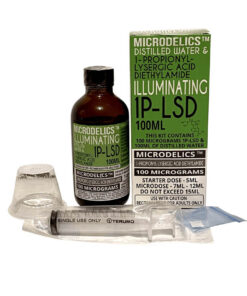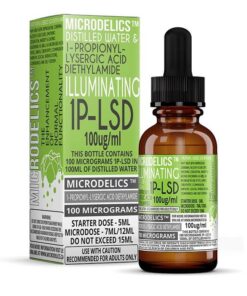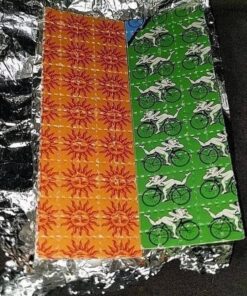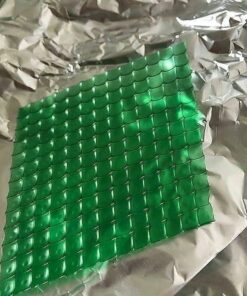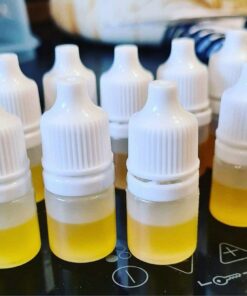LSD: What It Is, How It Works, and Its Effects
LSD (Lysergic acid diethylamide), commonly known as “acid,” is one of the most well-known and powerful psychedelic substances in the world. Originally synthesized in 1938, LSD has played a prominent role in both recreational drug culture and scientific research. Known for its ability to induce intense hallucinations and altered states of consciousness, LSD has intrigued and fascinated users and researchers alike.
What Is LSD?
LSD is a synthetic psychedelic drug derived from the ergot fungus, which grows on rye and other grains. As a hallucinogen, it primarily affects the brain’s serotonin receptors, leading to changes in mood, perception, and thought processes. A typical dose of LSD can induce visual and auditory hallucinations, profound changes in thinking, and a distorted sense of time.
Though LSD was initially used in psychiatric research during the mid-20th century, its recreational use surged during the 1960s counterculture movement. Today, LSD is mostly known as a street drug, though its potential therapeutic uses are being re-explored in clinical settings.
How Does LSD Work?
LSD affects the serotonin system in the brain, which is responsible for regulating mood, perception, and cognition. When LSD is ingested, it binds to serotonin receptors, particularly those in areas of the brain responsible for visual processing, which leads to distorted perceptions. Users often report heightened emotions, increased creativity, and vivid visual experiences. The effects of LSD are often unpredictable and can last up to 12 hours, depending on the dose and individual tolerance.
LSD Effects Include:
- Hallucinations: Both visual and auditory distortions.
- Euphoria: Extreme feelings of happiness and well-being.
- Altered Time Perception: A distorted sense of time, where minutes may feel like hours.
- Enhanced Sensory Perception: Colors may appear brighter, and sounds may be more pronounced.
- Spiritual Experiences: Many users report deep, life-changing insights and emotional breakthroughs.
LSD Uses and Benefits
While LSD is predominantly used recreationally, research into LSD’s therapeutic potential has been gaining momentum in recent years. Studies suggest that LSD could have potential applications for treating various mental health conditions, including:
- Depression: LSD may help alleviate symptoms of depression by facilitating emotional breakthroughs.
- Anxiety: Some clinical trials have shown that LSD can help reduce anxiety, particularly in terminally ill patients.
- PTSD: LSD could be used in conjunction with therapy to help patients process traumatic experiences.
- Addiction: Research suggests LSD might help with breaking addiction cycles by altering users’ perceptions of cravings and triggers.
The Risks of LSD Use
Although LSD is generally considered non-addictive, it is not without risks. The drug can cause psychological distress in some users, particularly those with pre-existing mental health conditions. Negative effects of LSD use can include:
- Bad Trips: Feelings of extreme paranoia, fear, or anxiety.
- Flashbacks: Some users experience spontaneous reoccurrences of the drug’s effects, long after the drug has worn off.
- Psychosis: In rare cases, high doses or prolonged use can trigger psychosis or exacerbate mental health conditions like schizophrenia.
- Accidents: Due to impaired judgment and distorted perception, users may engage in dangerous activities without realizing the risks.
Is LSD Legal?
The legal status of LSD varies by country. In many parts of the world, including the United States, Canada, and most European nations, LSD is classified as a Schedule I controlled substance, making it illegal to manufacture, possess, or distribute. However, in certain countries like The Netherlands, personal use is decriminalized or tolerated in certain situations.
LSD vs. Other Psychedelics
LSD is often compared to other psychedelic substances like psilocybin (found in magic mushrooms) and DMT (dimethyltryptamine). While all of these substances have similar effects on perception and consciousness, they differ in:
- Duration: LSD’s effects typically last 8 to 12 hours, while psilocybin lasts around 4 to 6 hours, and DMT lasts about 15 minutes.
- Intensity: LSD is often considered more potent than psilocybin, with a more intense and longer-lasting experience.
- Source: LSD is synthetic, while psilocybin is naturally occurring in certain mushrooms, and DMT is found in plants.
LSD Dosing and Consumption
LSD is typically consumed orally in blotter paper soaked with the drug, although it can also come in tabs, liquid, or gelatin form. The typical dose of LSD is measured in micrograms (mcg), with a common dose ranging from 50 to 200 mcg. Due to its potency, even a small dose can lead to intense effects.
LSD Safety and Responsible Use
If you choose to use LSD, it is important to prioritize safety:
- Set and Setting: The environment in which you take LSD is crucial to having a positive experience. A safe, comfortable, and calm environment with trusted individuals is recommended.
- Start with a Small Dose: If you are inexperienced with psychedelics, begin with a lower dose to gauge your tolerance.
- Avoid Mixing: Do not mix LSD with other substances, especially alcohol or stimulants, as this can lead to unpredictable and dangerous effects.
FAQs About LSD
1. What does LSD feel like?
LSD induces intense hallucinations, feelings of euphoria, distorted perceptions of time, and enhanced sensory experiences.
2. Can LSD be used for therapy?
Yes, LSD has been studied for its therapeutic potential in treating mental health conditions such as PTSD, depression, and anxiety. Clinical trials are ongoing.
3. Is LSD addictive?
No, LSD is not considered physically addictive. However, it can lead to psychological dependence in some individuals.
4. How long do the effects of LSD last?
The effects of LSD usually last between 8 and 12 hours, with the peak of the experience occurring 2 to 4 hours after ingestion.
5. Is LSD legal?
LSD is illegal in most countries, including the United States, Canada, and the UK, where it is classified as a Schedule I controlled substance. Always check local laws before obtaining or using LSD.
Conclusion: Is LSD Right for You?
LSD is a powerful psychedelic that can offer transformative experiences but comes with risks, especially when used irresponsibly. If you’re considering using LSD, it’s important to understand its effects, the legal status, and the potential risks associated with its use. For those interested in psychedelic therapy, LSD’s potential benefits for treating mental health disorders are worth exploring under professional guidance.
Lsd
Lsd

